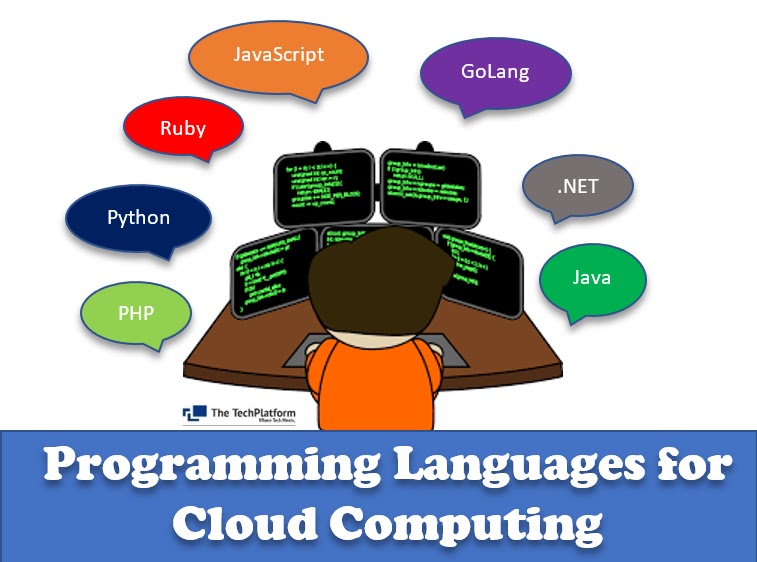Unveiling the Top 6 Programming Languages for Cloud Computing
In the rapidly evolving landscape of technology, cloud computing has emerged as a game-changer, revolutionizing the way businesses operate and applications are developed. As organizations increasingly migrate their workloads to the cloud, the choice of programming language becomes a crucial decision. Let's explore the top six programming languages that are making a significant impact in the realm of cloud computing.
Python:
Versatility: Python's versatility and readability make it a popular choice for cloud development.
Extensive Libraries: Its extensive libraries, such as Boto3 for AWS, simplify interactions with cloud services.
Rapid Prototyping: Python facilitates rapid prototyping, enabling developers to iterate quickly in a dynamic cloud environment.
Java:
Platform Independence: Java's "write once, run anywhere" philosophy makes it ideal for building robust and scalable cloud applications.
Enterprise-Ready: Known for its enterprise capabilities, Java is widely used in large-scale cloud deployments.
Strong Ecosystem: The rich Java ecosystem offers frameworks like Spring, enhancing cloud application development.
JavaScript (Node.js):
Full-Stack Development: Node.js, based on JavaScript, is gaining traction for its ability to enable full-stack development in a single language.
Asynchronous Nature: JavaScript's asynchronous nature is well-suited for handling concurrent operations in cloud environments.
Serverless Computing: JavaScript is a key player in serverless computing, facilitating the development of serverless functions.
Go (Golang):
Concurrency: Go's built-in support for concurrency makes it well-suited for cloud-native applications handling multiple tasks simultaneously.
Efficiency: Known for its efficiency, Go compiles to native machine code, resulting in faster execution times.
Scalability: Go's simplicity and scalability make it a preferred language for building microservices in the cloud.
C# (C Sharp):
Windows Ecosystem: C# is integral to the Microsoft ecosystem, making it a top choice for developing cloud applications on Azure.
Object-Oriented: Its object-oriented nature and strong typing provide a structured approach to cloud development.
ASP.NET Core: With ASP.NET Core, C# developers can build modern, scalable web applications for the cloud.
Ruby:
Simplicity: Ruby's simplicity and elegant syntax contribute to a developer-friendly environment in cloud application development.
Rails Framework: Ruby on Rails (RoR) enhances productivity, enabling quick development and deployment of cloud-based applications.
Community Support: The Ruby community actively contributes to gems and libraries that simplify cloud development tasks.
In conclusion, selecting the right programming language for cloud computing is pivotal for the success of modern applications. Each language has its strengths, and the choice often depends on factors such as project requirements, developer expertise, and the specific cloud platform in use. As technology continues to advance, these top programming languages will likely evolve, adapting to the ever-changing landscape of cloud computing.

